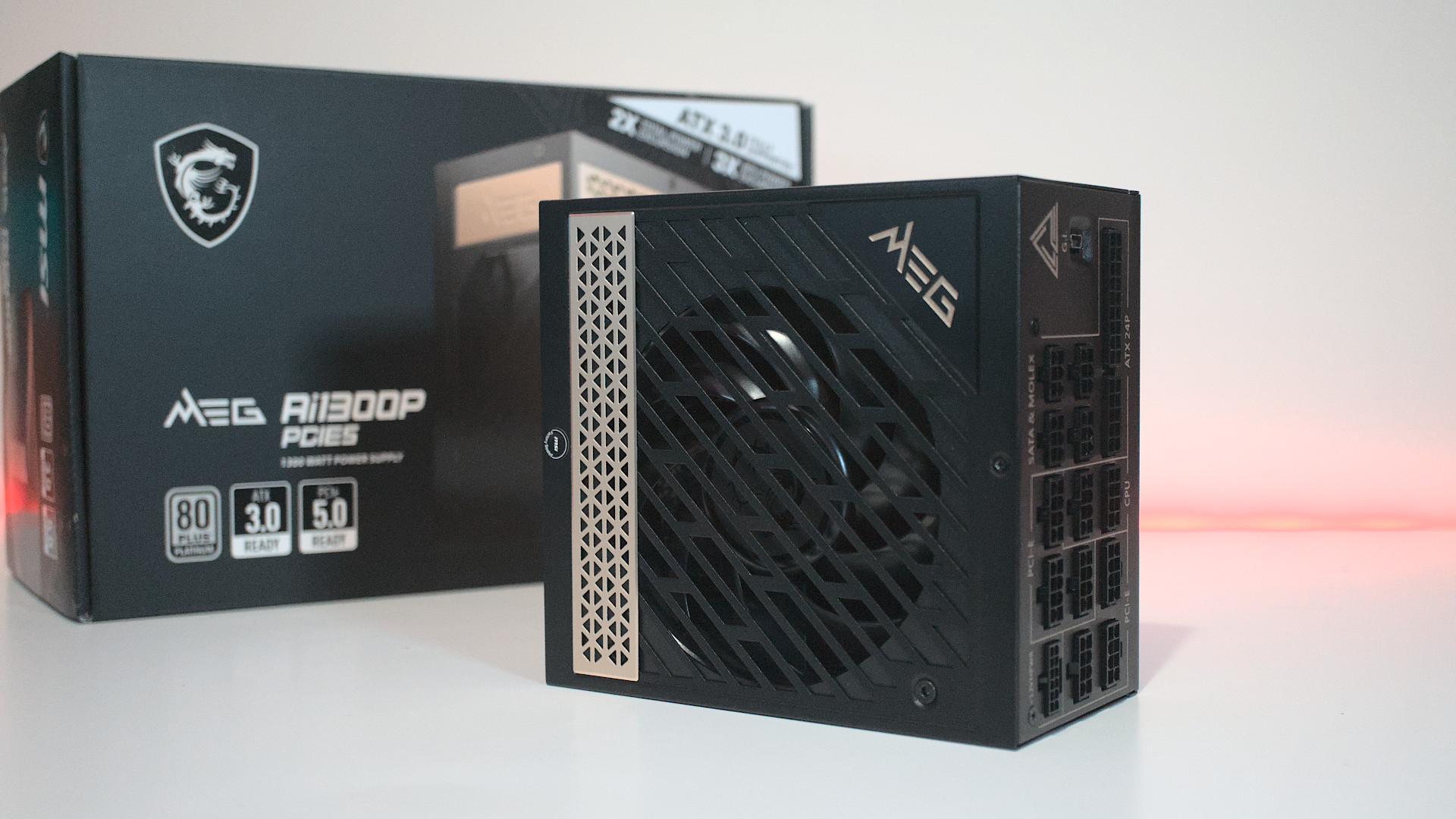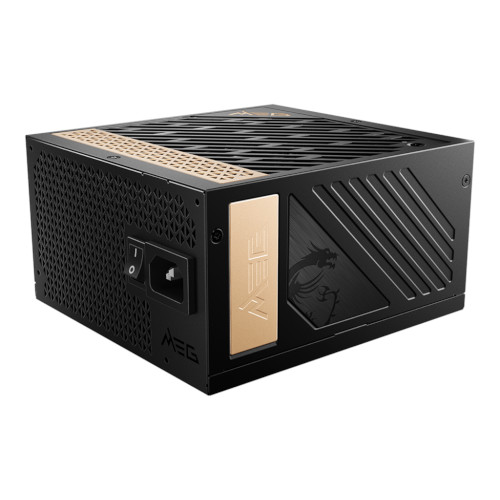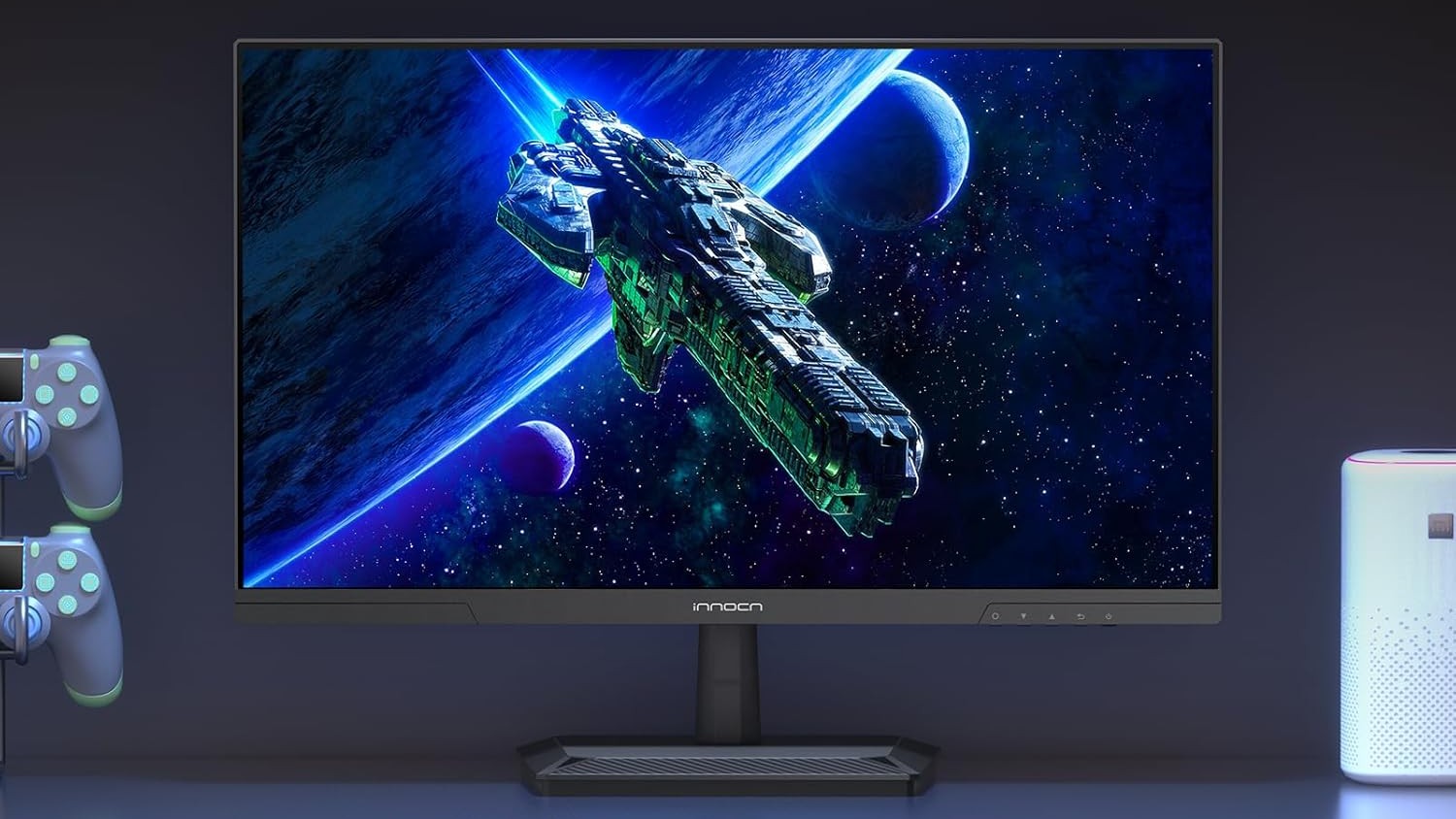Windows Central Verdict
MSI has caused a mighty splash with the company's first ATX 3.0 power supply. It's mighty good and designed to handle even more powerful enthusiast PC builds.
Pros
- +
Exceptionally good power delivery
- +
ATX v3.0 and PCIe 5.0
- +
Almost silent up to mid load
- +
Sleek modular design
- +
10-year warranty
- +
Plenty of high-quality cables
Cons
- -
Pricey
- -
Audible noise at higher loads
Why you can trust Windows Central
MSI has a solid collection of power supplies for all sorts of PC builds. whether you require something affordable that doesn't have the best efficiency rating or power output, or you have the available budget to go all-out for a PSU that can handle some serious overclocking. MSI likely has a unit that suits your needs.
Most power supplies can be expected to handle roughly the same, so long as they're from reputable manufacturers. We're currently enjoying the ATX 2 standard, but already some ATX 3.0 power supplies are starting to roll out. If you're eyeing up the new AMD or Intel processors with the latest NVIDIA, AMD, or Intel GPUs, you may want to consider one.
Today, we're going to be looking at the MSI MEG Ai1300P, a 1300W ATX 3.0 power supply with an 80 Plus Platinum efficiency rating. Could this be one of the best power supplies to buy right now?
MSI MEG Ai1300P: Price, specs, and availability
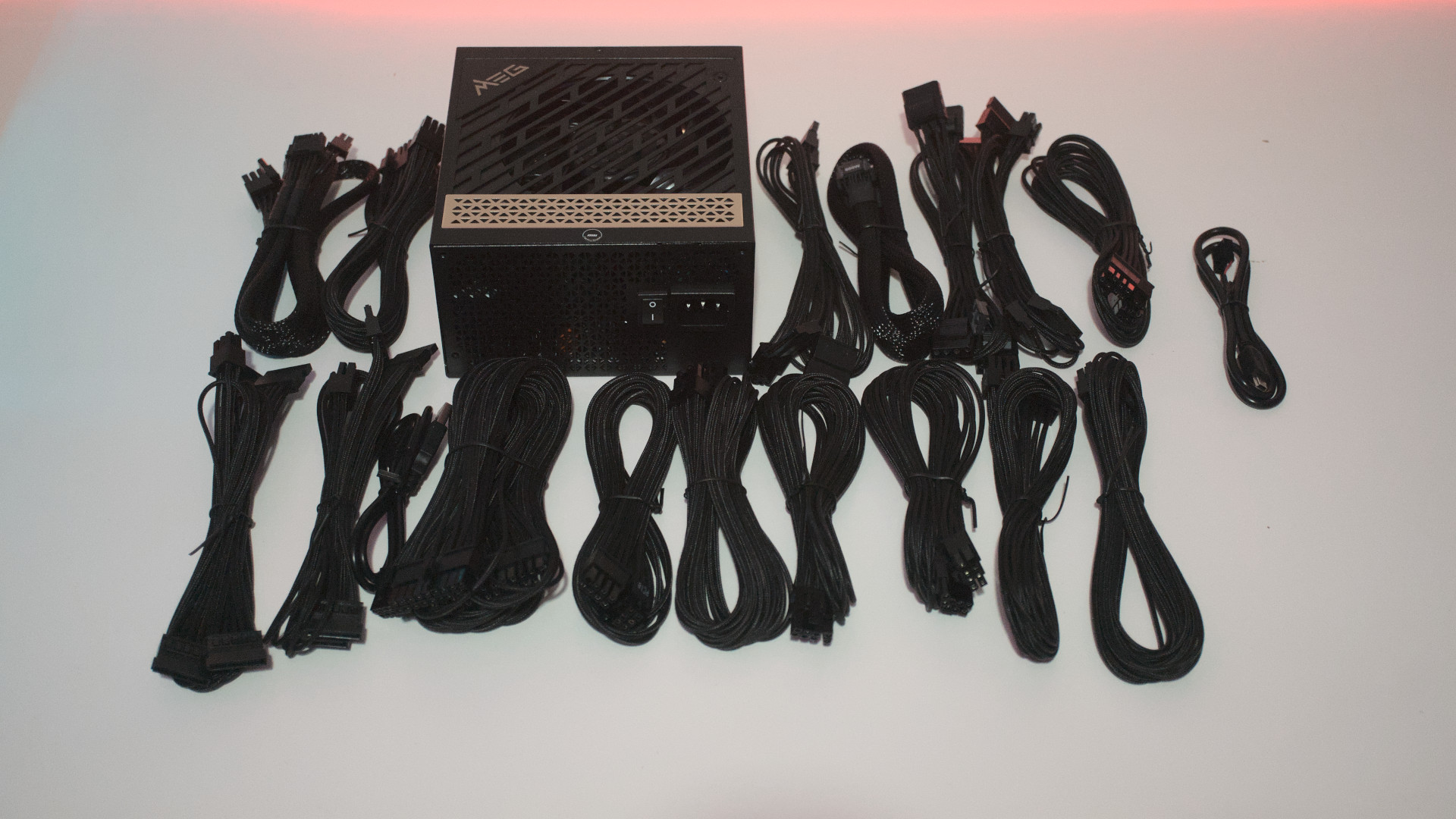
The MEG Ai1300P is a fully modular power supply that adheres to the ATX 3.0 standard. As well as the ATX12V v3.0 and EPS 2.92 certification, MSI's MEG PSU also has a sticker for 80 Plus Platinum, meaning this unit should be capable of achieving at least 90% power efficiency when converting AC to DC at various load levels.
A single 130mm blower is at hand to cool the high-quality Japanese internals. For cables, there's the usual selection of connections you'd find with many ATX power supplies, including a bunch of PCIe. MSI also includes a 12VHPWR connector with a throughput of 600W for the latest best graphics cards.
| Header Cell - Column 0 | MSI MEG Ai1300P |
|---|---|
| Capacity | 1300W |
| Type | Modular |
| Standard | ATX12V v3.0, EPS 2.92 |
| Connections | 1x 24-pin ATX (600mm), 2x 4+4-pin EPS12V (710mm), 6x 6+2-pin PCIe (600mm), 1x 12+4-pin PCIe (610mm), 1x 6+2-pin PCIe (610mm + 150mm), 4x SATA (500mm + 150mm), 1x Peripherals (500mm + 150mm) |
| Temperatures | 0-50 C |
| Efficiency | 80 Plus Platinum |
| Cooling | 1x 120mm fan |
| Dimensions | 160 x 150 x 86mm |
| Warranty | 10 years |
| Manufacturer | Channel Well Technology |
| Materials | Steel, PCB, plastic |
Although MSI is a reliable brand when it comes to power supplies, having a 10-year warranty is a nice touch that'll provide additional peace of mind.
MSI MEG Ai1300P: Design and features
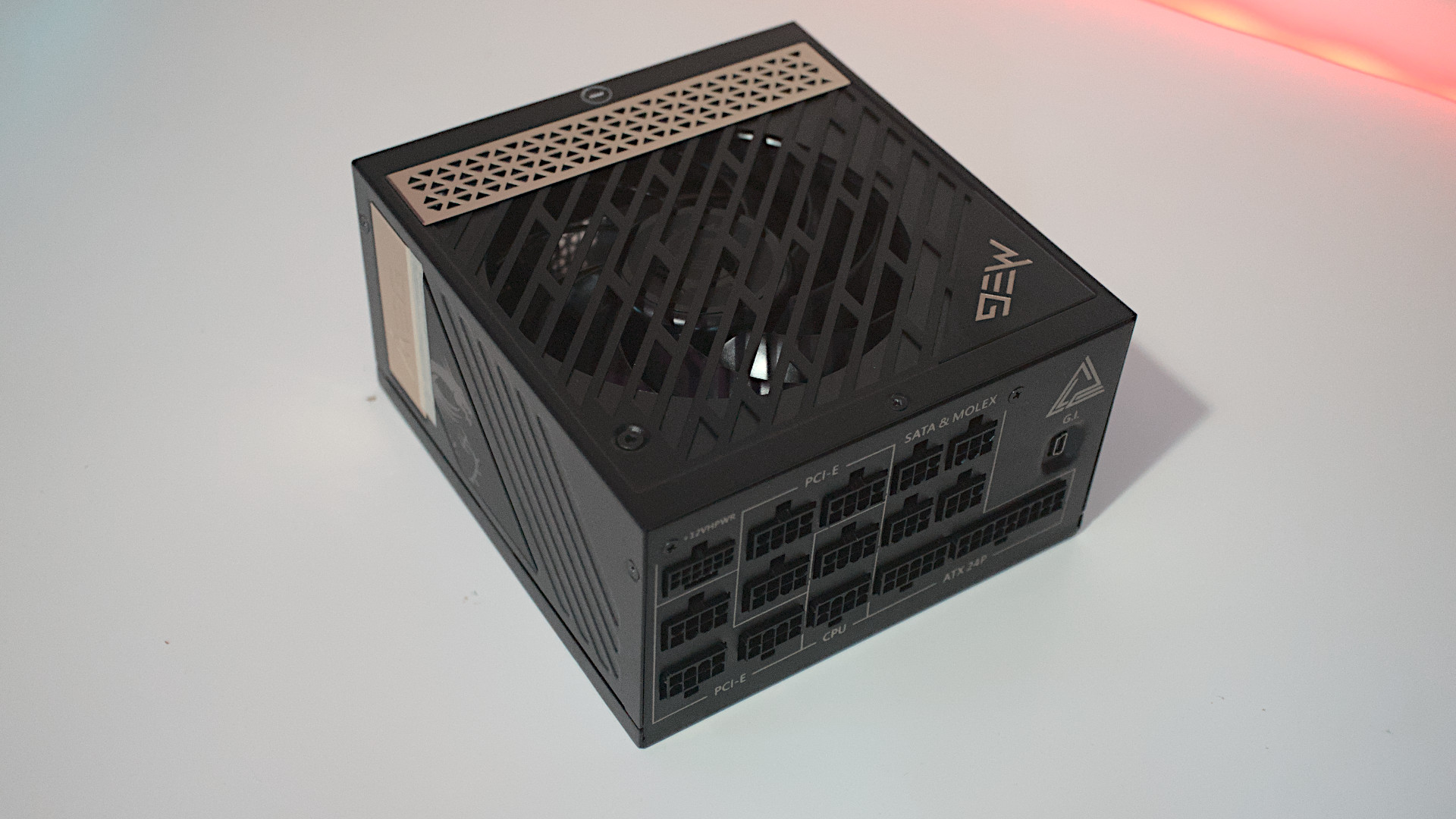
The design of a power supply isn't the most exciting part of the company since nearly all of them look identical. They're a slab of metal that houses all the magic inside. We're going to have to open the MSI MEG Ai1300P to have a peek inside and see what MSI has included.
Utilizing a power supply foundation from manufacturing partner Channel Well Technology, this is one seriously capable unit. Channel Well Technology is well known in the PSU industry and the MSI MEG Ai1300P has various high-end, premium components inside that result in quite the power conversion package.
The fan is a hydro-dynamic bearing 120mm blower by Powerlogic. Interestingly, there's space for MSI to use a larger fan and I'm surprised it didn't since it would allow lower RPMs with similar airflow. This is an issue as we'll go into in the next section of this review when you really push the PSU hard and everything ramps up, including that 120mm fan.
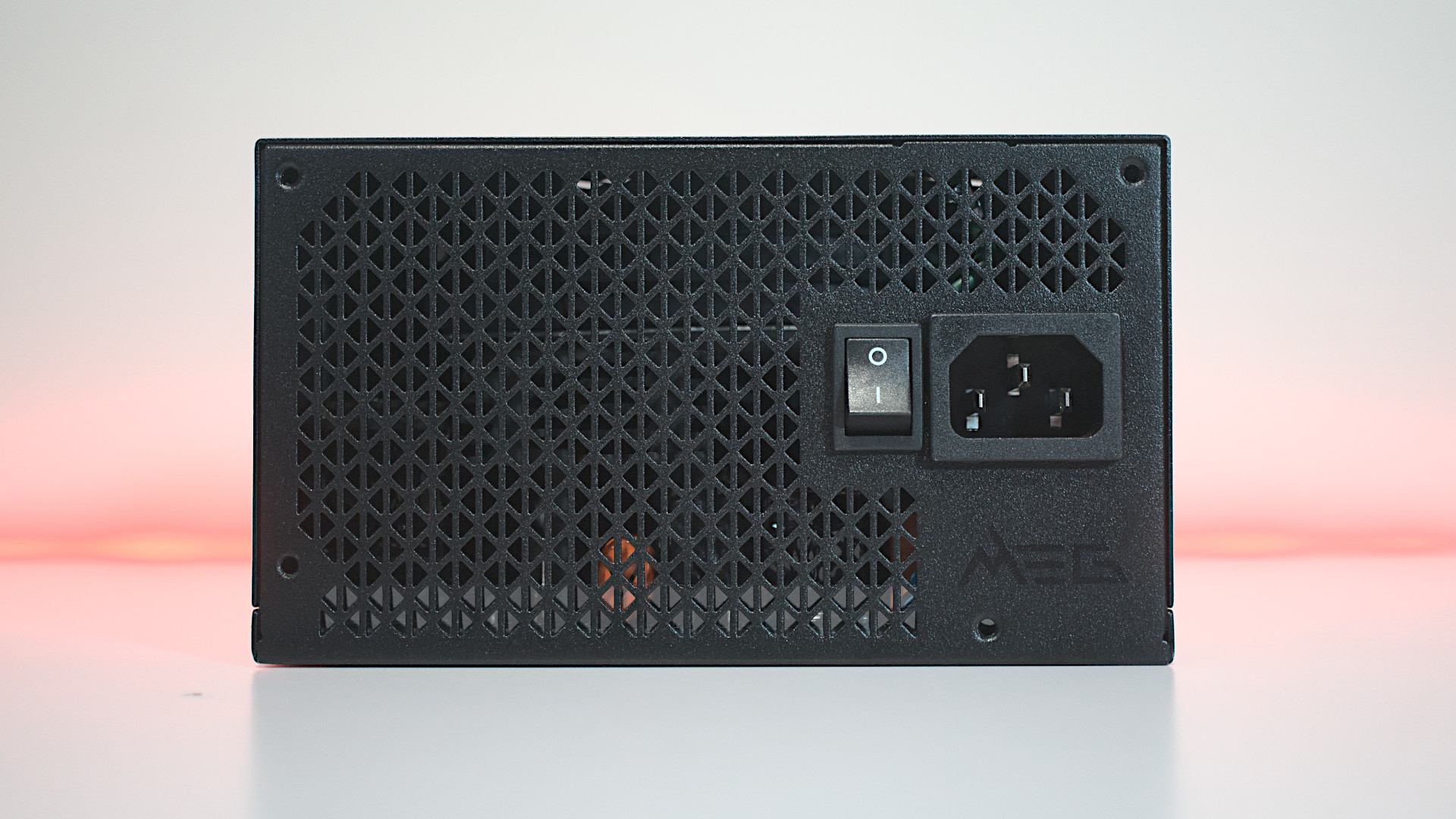
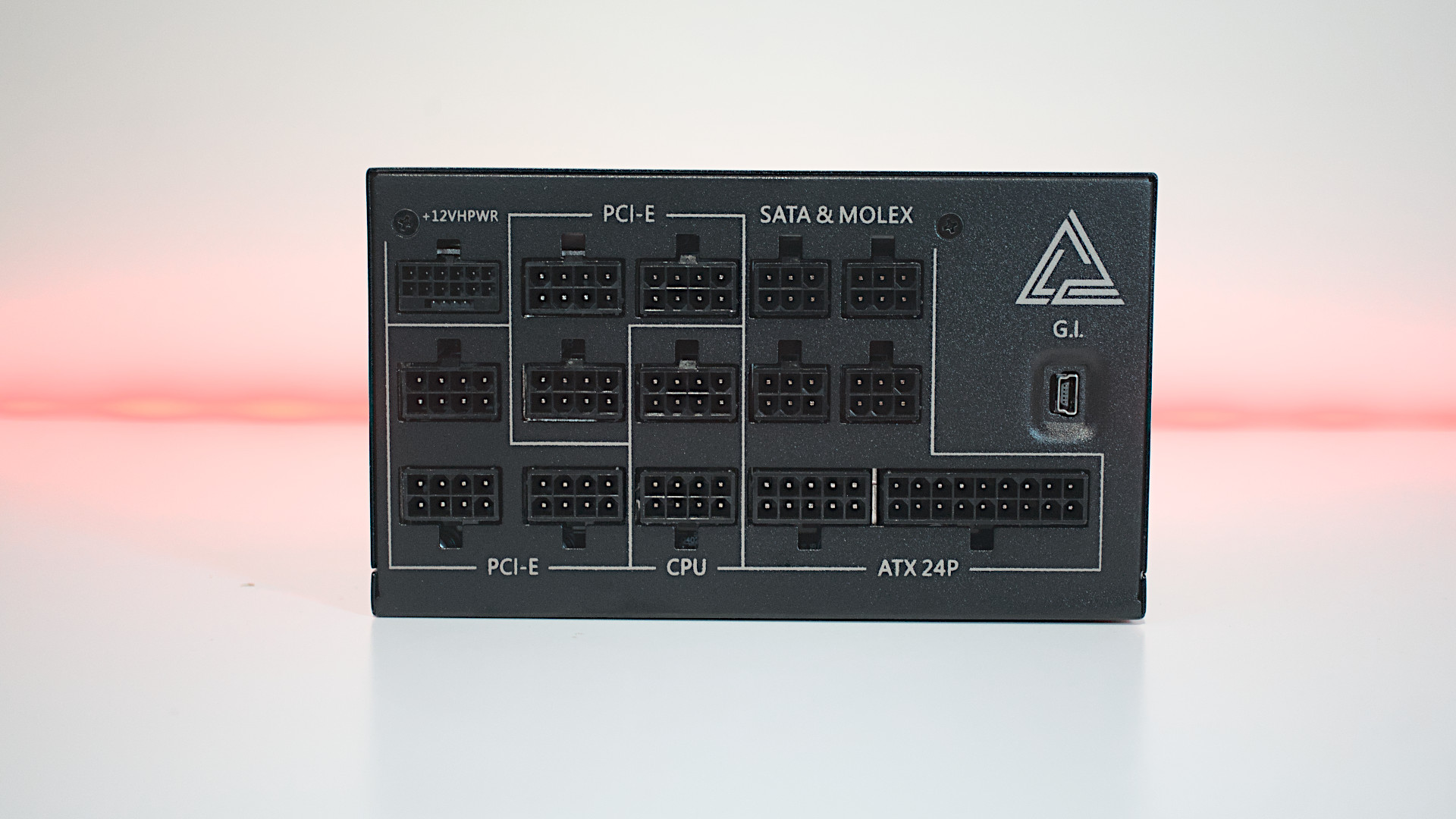
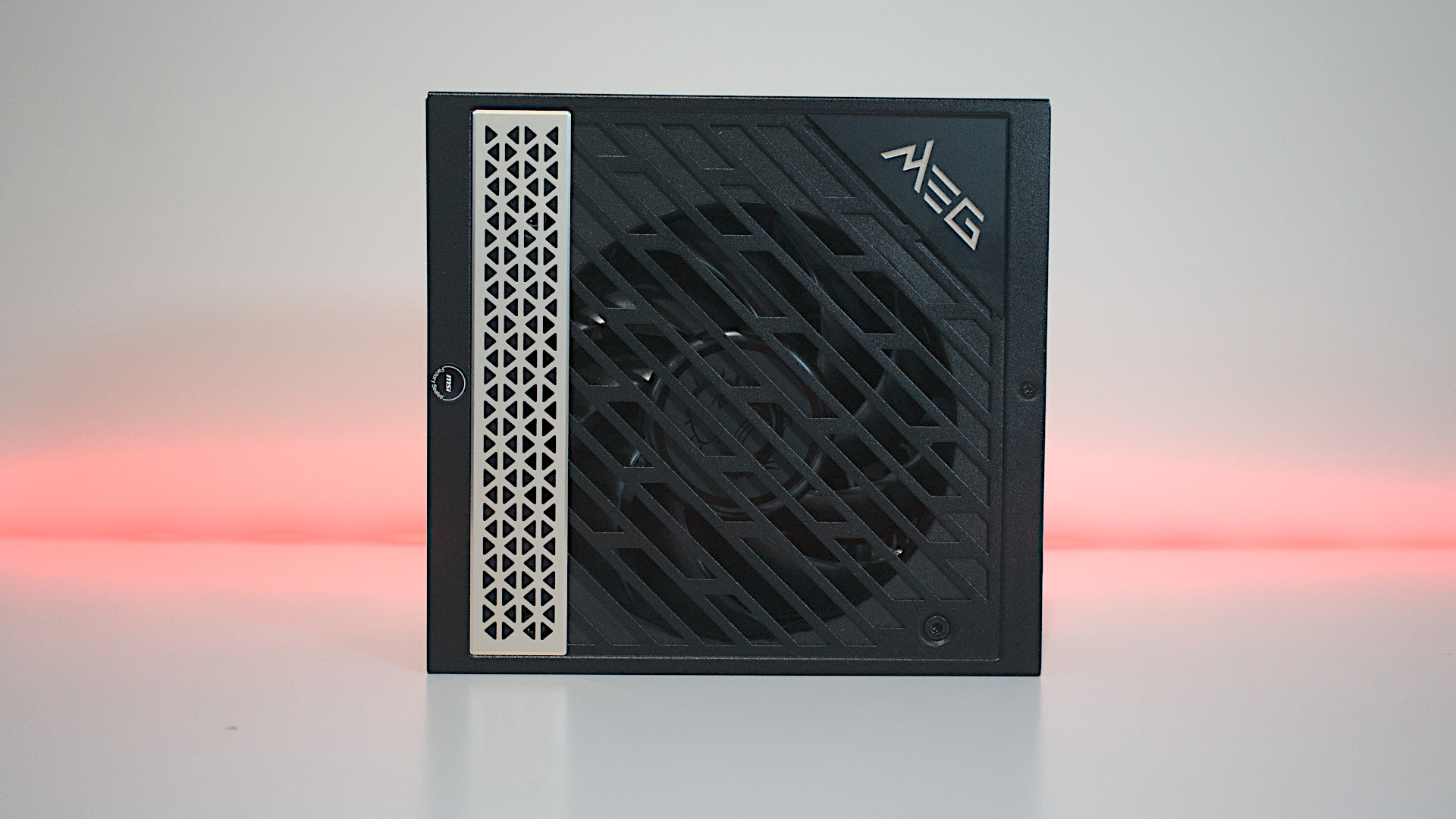
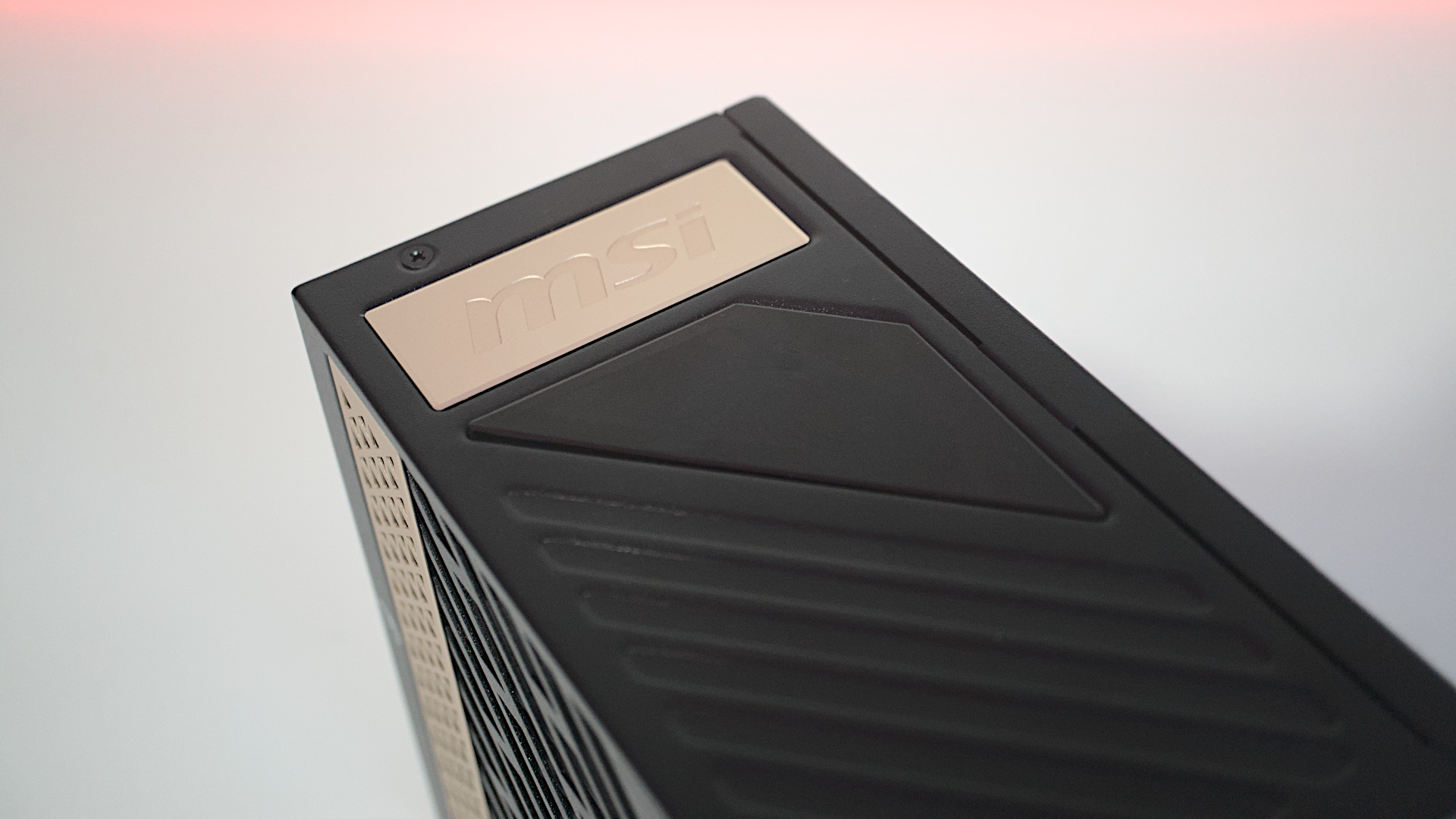
The MSI MEG Ai1300P is a semi-digital PSU, which means there are digital controllers that handle some of the conversion on the primary and secondary sides. This allows for various manipulations on the system side, making it possible for actions like fan speed alterations to be made.
For connecting components to the power supply, here's what is included with the MSI MEG Ai1300P:
- 1x 24-pin ATX (600mm)
- 2x 4+4-pin EPS12V (710mm)
- 6x 6+2-pin PCIe (600mm)
- 1x 12+4-pin PCIe (610mm)
- 1x 6+2-pin PCIe (610mm + 150mm)
- 4x SATA (500mm + 150mm)
- 1x Peripherals (500mm + 150mm)
MSI MEG Ai1300P: Performance
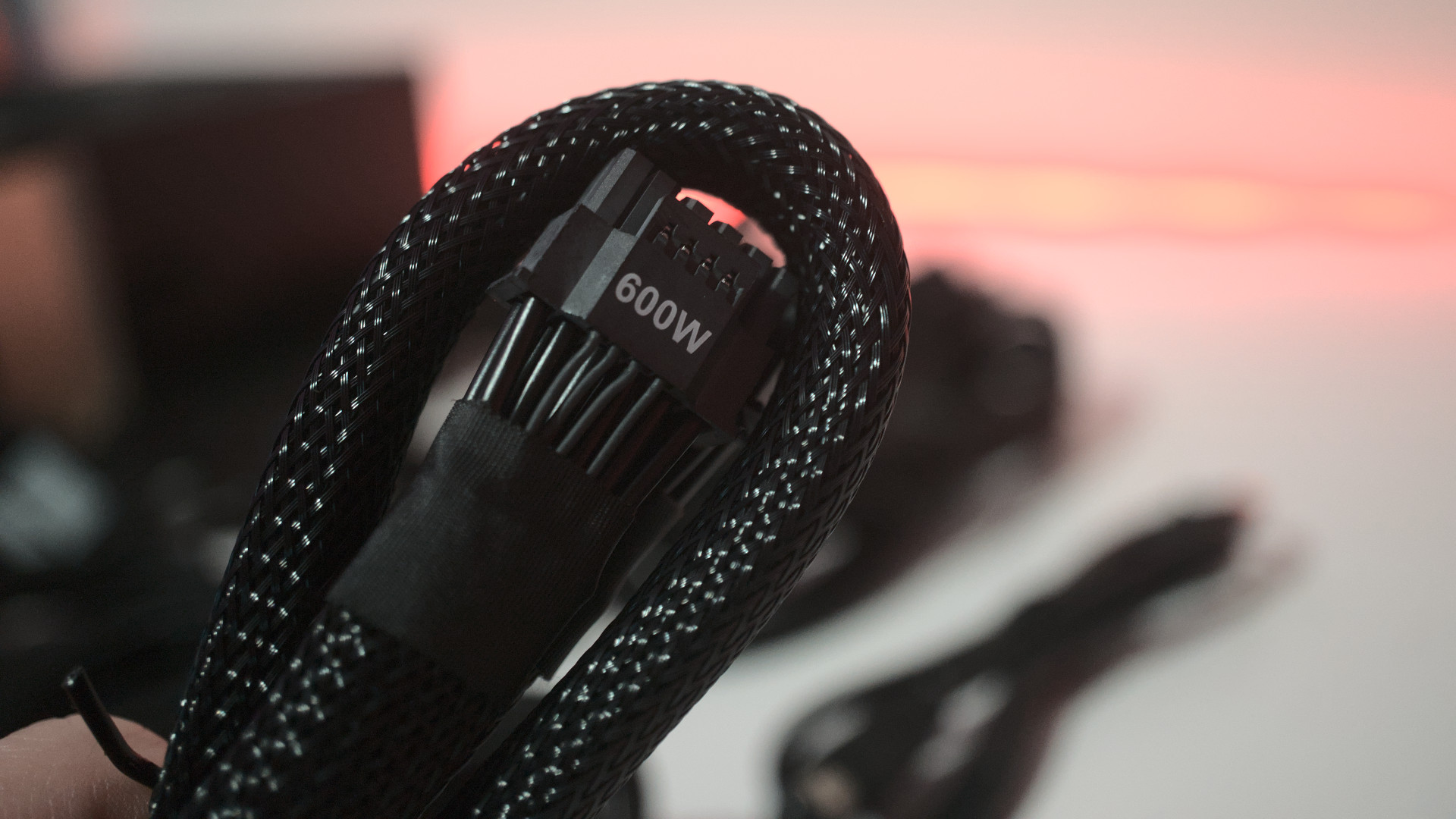
Performance is largely determined by the components used in the construction of a power supply. The MSI MEG Ai1000P has high-quality internals and as such we expect performance to be solid across the board. To put the PSU to the test, we used it with a testbench, consisting of the AMD Ryzen 7950X CPU and NVIDIA GeForce RTX 4090 GPU.
| Header Cell - Column 0 | MSI MEG Ai1300P |
|---|---|
| Primary | Row 0 - Cell 1 |
| Transient Filter | 6x Y caps, 2x X caps, 2x CM chokes, 1x MOV |
| Inrush Protection | NTC Thermistor & Relay |
| Bridge Rectifier(s) | 2x GBJ2506 (600V, 25A @ 100C) |
| APFC MOSFETs | 2x Infineon IPA60R099P6 (600V, 24A @ 100C,) |
| Row 5 - Cell 0 | 1x SYNC Power SPN5003 |
| APFC Boost Diode | 2x Infineon IDH08G65C6 (650V, 8A @ 145C) |
| Bulk Cap(s) | 1x Nichicon (400V, 680uF, 2,000h @ 105C, GL) |
| Row 8 - Cell 0 | 1x Nichicon (400V, 560uF, 2,000h @ 105C, GG) |
| Main Switchers | 4x Alpha & Omega AOTF29S50 (500V, 18A @ 100C) |
| IC Drivers | 2x Novosense NSi6602 |
| Row 11 - Cell 0 | 1x Infineon 2EDN752x |
| Digital APFC Controller | Texas Instruments UCD3138A |
| Digital Resonant Controller | Texas Instruments UCD3138A |
| Topology | Semi-Digital, Interleaved PFC, Full-Bridge & LLC converter |
| Secondary | Row 15 - Cell 1 |
| +12V MOSFETs | 6x Infineon BSC014N06NS (60V, 152A @ 100C) |
| 5V & 3.3V | DC-DC Converters: 6x FETs |
| Filtering Capacitors | Electrolytic: 5x Nippon Chemi-Con (105°C, W), 1x Nichicon (2-5,000h @ 105°C, HD), 4x Nippon Chemi-Con (4-10,000h @ 105°C, KY), 1x Nippon Chemi-Con (2-5,000h @ 105°C, KZE), 3x Rubycon (4-10,000h @ 105°C, YXJ), 3x Rubycon (4-10,000h @ 105C, YXF) |
| Row 19 - Cell 0 | Polymer: 11x Nippon Chemi-Con, 15x FPCAP, 5x NIC |
| Supervisor IC | Weltrend WT7502R (OVP, UVP, SCP, PG) |
| MCU & Fan Controller | Microchip PIC32MM0064GPM036 |
| Topology | Synchronous Rectification & DC-DC converters |
| 5VSB Circuit | Row 23 - Cell 1 |
| Rectifier | 1x PS1045L SBR (45V, 10A) |
| Standby PWM Controller | On Bright OB2365T |
What one can take away from the above table is the MSI MEG Ai1300P has everything you need for a powerful PC build. We don't have the means to measure ripple and other variations in power conversion, but we are able to monitor efficiency and how the power supply performs through use with a PC.
Running the Ryzen 9 7950X and RTX 4090 requires considerable headroom in power output. The MEG Ai1300P can supply up to 1300W in total, with 600W through the 12VHPWR connection. It's more than enough, even for overclocking. You won't encounter any issues running the best hardware with this PSU.
At lower loads, this PSU may not be as efficient as other power supplies, but when you're pushing it hard, it earns that 80 Plus Platinum rating. The fan kicks in at around 50-60% and gets louder as you approach full load. As is the case with other high-end power supplies, MSI includes various safety protocols:
| Header Cell - Column 0 | MSI MEG Ai1300P |
|---|---|
| OCP (Cold @ 26°C) | 12V: 102.2A (122.64%), 11.927V |
| Row 1 - Cell 0 | 5V: 29A (131.82%), 5.046V |
| Row 2 - Cell 0 | 3.3V: 28.4A (129.09%), 3.311V |
| Row 3 - Cell 0 | 5VSB: 4.8A (160%), 4.993V |
| OCP (Hot @ 44°C) | 12V: 101.4A (121.68%), 11.906V |
| Row 5 - Cell 0 | 5V: 28.8A (130.91%), 5.057V |
| Row 6 - Cell 0 | 3.3V: 27.4A (124.55%), 3.324V |
| Row 7 - Cell 0 | 5VSB: 4.7A (156.67%), 4.989V |
| OPP (Cold @ 28°C) | 1223.42W (122.34%) |
| OPP (Hot @ 43°C) | 1223.42W (122.34%) |
| OTP | ✓ (168°C @ 12V Heat Sink) |
| SCP | 12V to Earth: ✓ |
| Row 12 - Cell 0 | 5V to Earth: ✓ |
| Row 13 - Cell 0 | 3.3V to Earth: ✓ |
| Row 14 - Cell 0 | 5VSB to Earth: ✓ |
| Row 15 - Cell 0 | -12V to Earth: ✓ |
| PWR_OK | Proper operation |
| NLO | ✓ |
| SIP | Surge: MOV |
| Row 19 - Cell 0 | Inrush: NTC Thermistor & Bypass relay |
Fan noise was measured in at around 42dB while under heavy load (90%). This is considerably higher than other premium power supplies out there and while this is a more advanced unit with the ATX 3.0 standard, a larger cooling fan would have helped.
MSI MEG Ai1300P: Competition
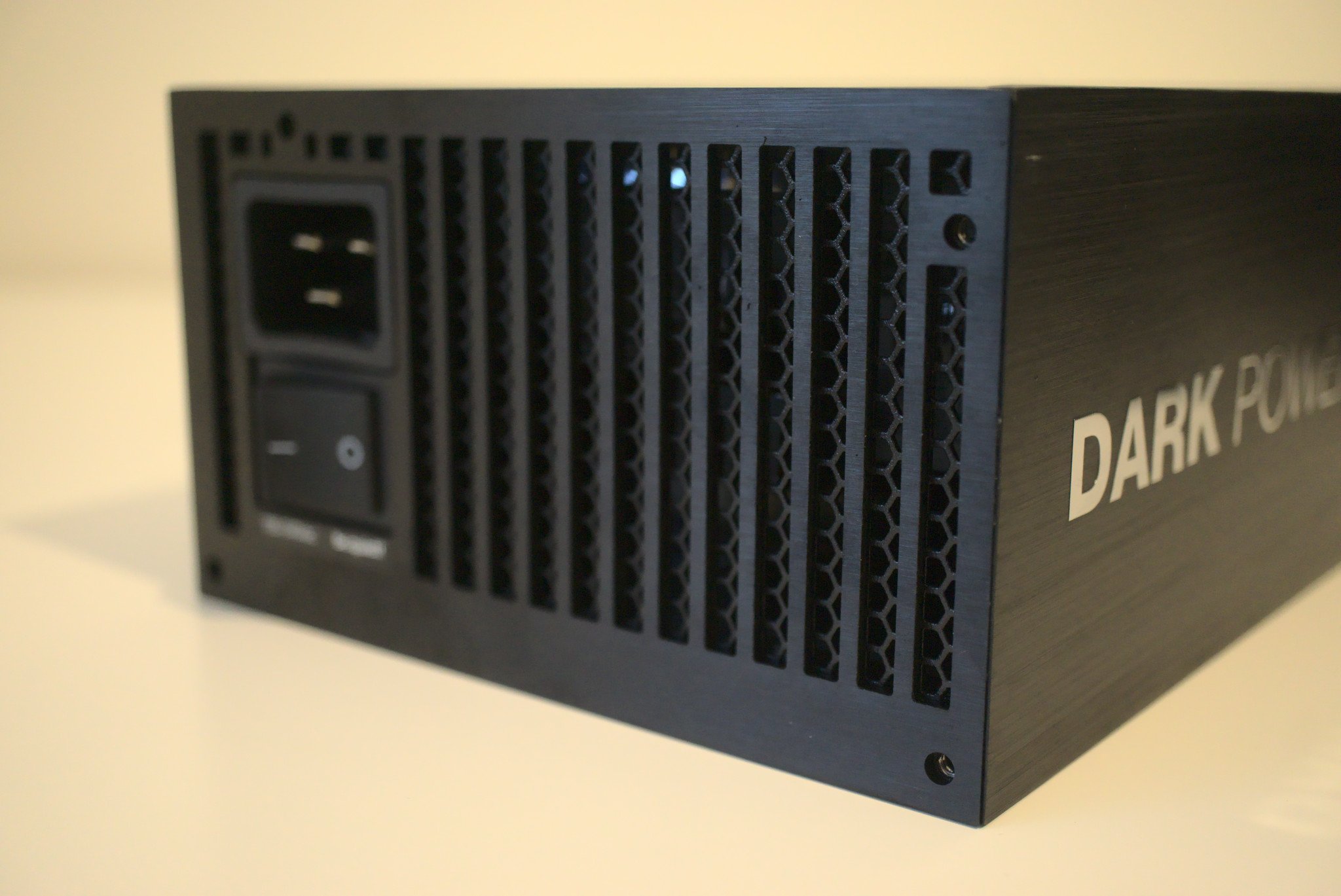
The ATX 3.0 standard is still fairly new for power supplies, and we've only seen a handful be released to the general public. For SilverStone, we've got the SilverStone HELA R series. It's fairly similar to this MSI PSU in terms of available power for delivery and specs. Other brands have also launched their own units, including ASUS and Thermaltake.
Thermaltake has the mighty Toughpower GEN 5 GF3 that can provide some serious power like other ATX 3.0-rated power supplies. The ASUS ROG Loki SFX-L is an interesting ATX 3.0 power supply as it's in an SFX-L form factor, allowing you to install it inside smaller cases where a standard ATX-sized unit may not be compatible.
Unfortunately, when it comes to power supplies, one cannot simply choose a reliable brand and expect the best experience as recent mishaps with Gigabyte have proven. Still, we stand by our recommendations from the likes of ASUS, be quiet! (we're big fans of the be quiet! Dark Power Pro), SilverStone, MSI, and Seasonic, among others.
MSI MEG Ai1300P: Should you buy?
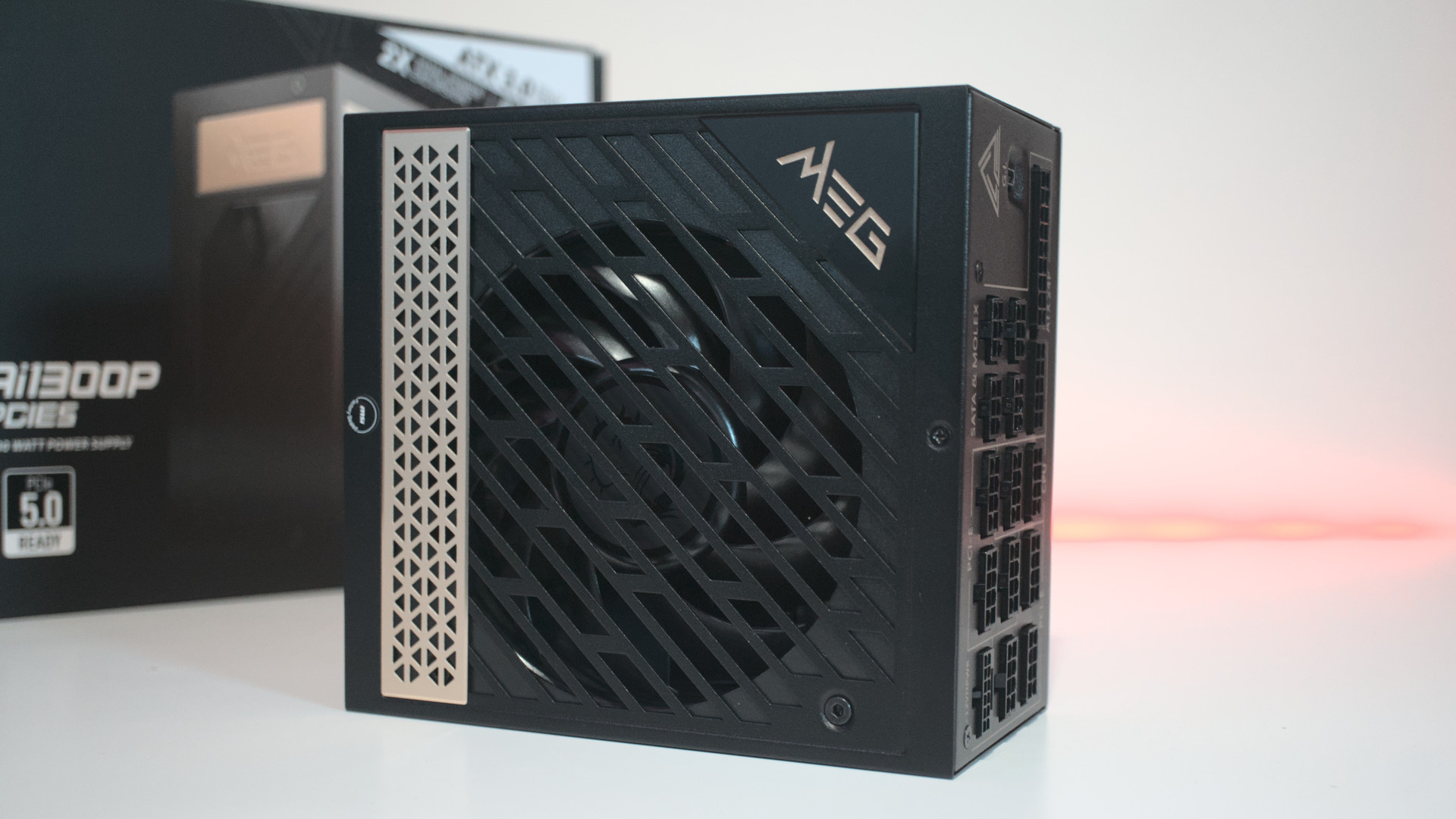
You should buy this if ...
- You plan on using (and overclocking) a PC with a flagship CPU and GPU.
- You want one of the best rated power supplies for efficiency.
- You don't mind spending more than $250 on a PSU.
You shouldn't buy this if ...
- You don't want to spend so much on a PSU.
- You won't use anywhere near as much power.
Power supplies have largely been the same since the ATX 2.0 standard was introduced in 2003. We've seen iterations over the years but moving up to 3.0 is the first leap in almost two decades. It's fitting as we're using far more power with recently released processors and graphics cards. The MSI MEG Ai1300P is about as good as you can get without decimating your budget.
Having 1300W of available power output is a massive plus for those looking to use 13th Gen Intel or AMD Ryzen 7000 processors with an NVIDIA RTX 40 series GPU. Throw in the power required by the motherboard, as well as everything else connected to the PSU, and it all quickly adds up. Being 80 Plus Platinum certified is but the icing on the sweet cake.

Rich Edmonds was formerly a Senior Editor of PC hardware at Windows Central, covering everything related to PC components and NAS. He's been involved in technology for more than a decade and knows a thing or two about the magic inside a PC chassis. You can follow him on Twitter at @RichEdmonds.
